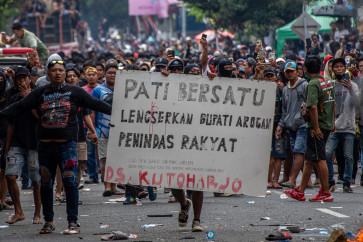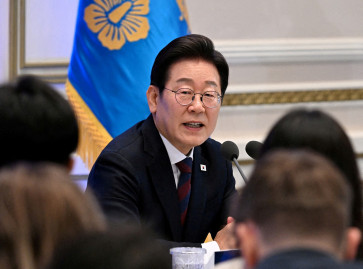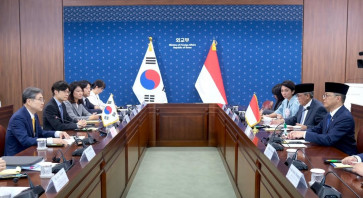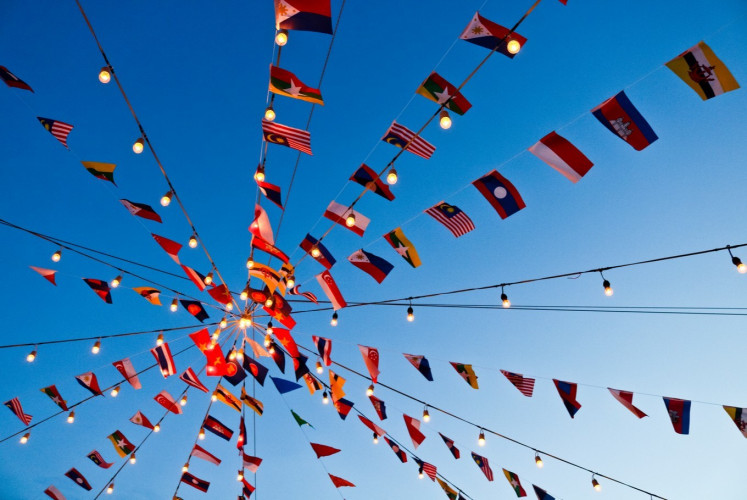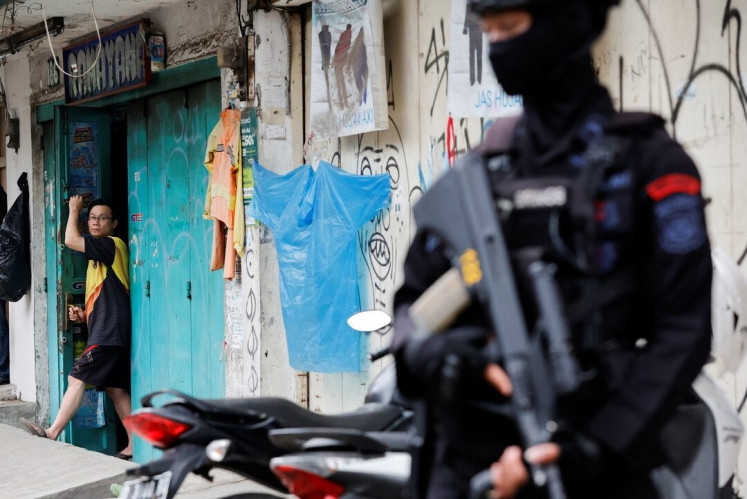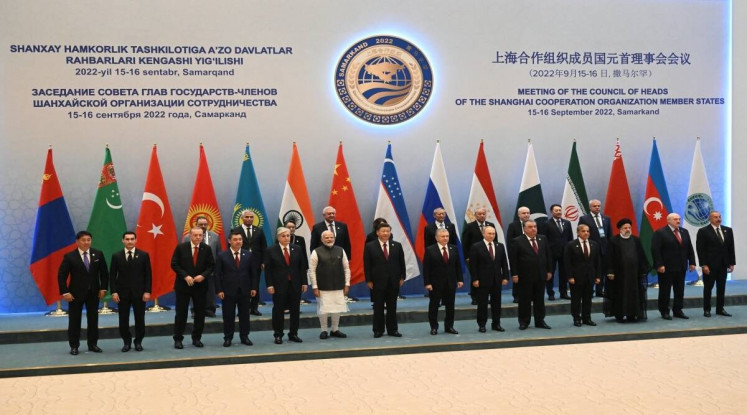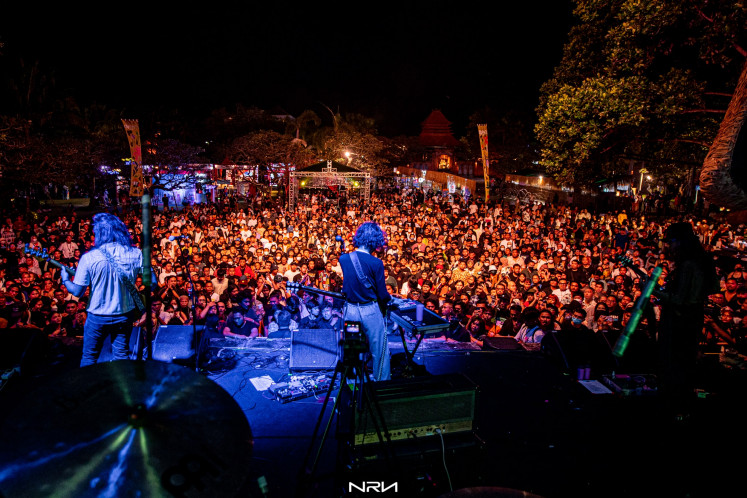Popular Reads
Top Results
Can't find what you're looking for?
View all search resultsPopular Reads
Top Results
Can't find what you're looking for?
View all search resultsThe last peace accord?
As a key player behind the Helsinki Agreement, Indonesia has the credibility, and perhaps the responsibility, to become a global peace mediator.
Change text size
Gift Premium Articles
to Anyone
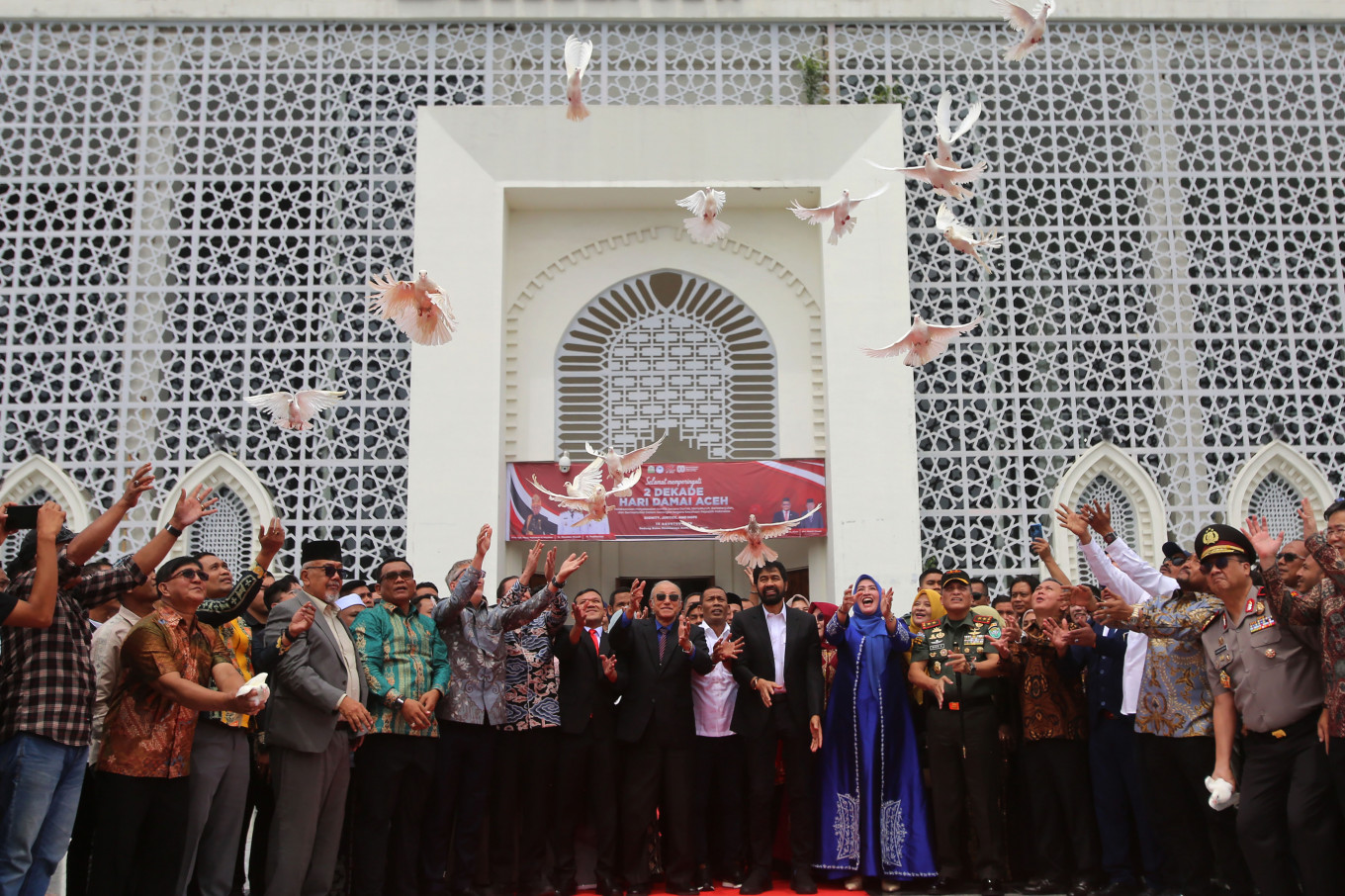 Aceh Governor Muzakir Manaf (eighth right) and Aceh wali nanggroe (traditional leader) Malik Mahmud (center) release doves with former Free Aceh Movement (GAM) officials and incumbent Aceh Regional Leadership Coordination Forum (Forkopimda) officials during the 20th anniversary ceremony of the Aceh Peace Agreement in Banda Aceh, Aceh, on Aug. 15, 2025. (Antara/Ampelsa)
Aceh Governor Muzakir Manaf (eighth right) and Aceh wali nanggroe (traditional leader) Malik Mahmud (center) release doves with former Free Aceh Movement (GAM) officials and incumbent Aceh Regional Leadership Coordination Forum (Forkopimda) officials during the 20th anniversary ceremony of the Aceh Peace Agreement in Banda Aceh, Aceh, on Aug. 15, 2025. (Antara/Ampelsa)
T
his month 20 years ago, the world witnessed something rare: The successful resolution of a decades-long separatist conflict in Southeast Asia’s largest nation.
On Aug. 15, 2005, in the quiet neutrality of Helsinki, the government of Susilo Bambang Yudhoyono and the erstwhile Free Aceh Movement (GAM) signed a landmark peace agreement that ended nearly 30 years of violence and ushered in a new chapter for the nation’s westernmost province.
The Helsinki Agreement remains one of Asia’s last true peace settlements; one that went beyond temporary ceasefires to actually confront root causes. It demobilized fighters, returned governance to civilians and brought hope to a region scarred by war and natural disasters.
Yet, as we reflect on two decades of relative peace in Aceh, we must also acknowledge the accord’s global significance in today’s world where peace itself is fast becoming a relic.
From the bloody occupation of the Gaza Strip to the trench warfare in Ukraine, from border flare-ups between Cambodia and Thailand to ethnic conflict and military rule in Myanmar, we are increasingly seeing a pattern: In an age of piecemeal conflicts, ceasefires are becoming the new norm to strive for, not peace itself.
Diplomatic energy is spent on silencing guns, not solving problems.
As the Martti Ahtisaari Peace Foundation recently noted, international conflict mediation is now largely driven by efforts to "manage" violence, not to end it.
But Aceh reminds us that peacebuilding is possible, especially if we commit to treating warring parties with dignity, addressing inequality and empowering local agency.
The Aceh deal only became possible because both sides dropped preconditions, international mediators created trust and the post-2004 tsunami urgency shifted political will from combat to cooperation.
Despite its imperfections, the dividends of peace in Aceh have been real. Once burned-out schools have been rebuilt. Coffee shops that shuttered at dusk now stay open into the night. Children can walk to school without fear of military checkpoints.
Aceh may still face governance challenges, but it is no longer trapped in a vicious cycle of war. That alone marks an extraordinary achievement in today’s climate of conflict.
This brings us to a crucial question: What role can Indonesia play in exporting its own peacebuilding model?
As a country that has resolved multiple domestic insurgencies without foreign intervention, and as one of the key players behind the Helsinki success, Indonesia has the credibility, and perhaps the responsibility, to become a global mediator.
The government of President Prabowo Subianto, increasingly criticized for lacking a distinctive global strategy, could find in peace diplomacy a meaningful and principled legacy. Especially when compared with the jaded preparations for hypothetical war that Jakarta is quietly pursuing.
After all, Indonesia’s partners in the 2005 peace deal, Finland, the European Union and ASEAN, helped facilitate a peace model that still holds relevance.
Imagine if Jakarta took the lead to extend that experience to Myanmar, or helped unlock progress on the long-delayed Code of Conduct in the South China Sea.
At a time when China continues to flout UNCLOS rulings and sideline international mediation, a reinvigorated Indonesian role could set a higher standard for regional diplomacy.
Of course, the choice to pursue peace over war is never easy. Legal solutions are politically risky, especially when sovereignty and national pride are at stake.
The world has already watched how both Indonesia and Malaysia have been burned by the International Court of Justice, Jakarta over Sipadan-Ligitan and Kuala Lumpur over Pedra Branca.
That history may explain the reluctance to pursue definitive settlements in ongoing maritime disputes. But if we continue settling for ceasefires instead of real peace, we normalize the erosion of international norms.
The Helsinki Agreement showed that with enough courage, commitment and mutual respect, peace is not just possible; it can be transformative.
Let us hope we do not let it become the last of its kind.


